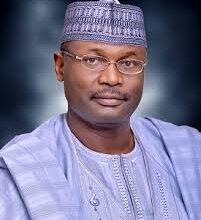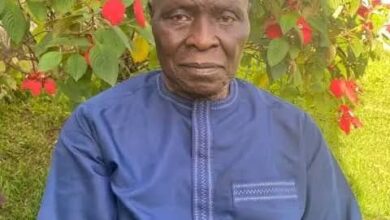Calabar Carnival: How Heritage Bank’s partnership is making Nigeria tourism destination in Africa

The enormous richness and diversity of Nigeria’s culture has always been considered as strong reason why tourism should be a primary foreign exchange earner for the country. From east to west; from north down to south, the country is naturally endowed with rich tourist sites.
Nigeria’s art and cultural heritage are woven from threads of history and diversity, legend and conquest. Nigeria is a vast country with a population of about 170 million people covering about 923,768 sq.km of landmass, located wholly within the tropics. The country aptly described as the ‘Giant of Africa’ and the Heart of Africa is richly endowed with ecological and cultural resources, which are of universal recognition. The richness and diversity of the Nigeria culture is a manifestation of the socio-cultural differences of the over 250 ethnic groups that inhabit the land for ages.
Expected to be one of the growing and high earning sector in the country, the industry was accorded priority status in 1990 when the National Tourism Policy was launched. The main thrust of government policy on tourism was to generate foreign exchange earnings, create employment opportunities, promote rural enterprises and national integration, among other things.
Given the plethora of opportunities provided by tourism, it is surprising that the industry has not received adequate attention in the developing countries where most of the natural tourist sites are domiciled, especially in Nigeria. An incredible tour through the history of tourism in Nigeria over the last 50 years of its existence shows that not much has been accomplished and important challenges remain.
As at 2016, direct contribution of Travel & Tourism to GDP was N1,861.4 billion (1.7% of GDP) but this was forecast to rise by 1.1% to NGN1,881.1 billion in 2017. But the figures presented in the WTTC 2017 report are proof that not so much contribution from the sector has reflected on the economy. In the last 10 months, no significant direct contribution from Travel & Tourism to the country’s GDP. For instance, its contribution to the whole economy GDP remains at 1.7%, same as it was in 2016. A review of tourism’s impact on the country’s GDP in the last 10 years (2007 – 2017) shows that its impact was at all-time high in 2008, having contributed 2.4% to the GDP. Since 2008, its impact has been fluctuating between 1.8% and 1.5%.
However, more must be done to market Nigeria’s massive and profitable industry. This is because the country is yet to tap its full potentials.
With this development, Heritage Bank through its strategic partnerships with government and private organisations has continued to make efforts to transforming Nigeria into a tourism sector destination in Africa and position it as lever of Nigeria’s economic growth and development.
The bank, aimed at boosting Nigeria’s tourism via creative arts industry supported the sponsorship of exhibition at the National Museum Benin, at the Exhibition Gallery of National Museum Benin by the National Commission for Museums and Monuments, NCMM, in collaboration with the Edo State Government, and the Smithsonian Institute, United States of America.
Also, Heritage Bank Plc partnered with the organisers of the International Festival of Contemporary Dance (IFCOD) to host the second edition of One Language, a musical production of intrigue, dance and drama.
Most prominent of its partnership and supports is the annual Calabar Carnival and festival, tagged “Africa’s Biggest Street Party,” was created as part of the vision of making Cross River State the number one tourist destination for Nigerians and other tourists across the world.
The theme of the recently concluded 2017 edition was “migration and climate change.”
The theme was chosen against the backdrop that Africa has always known migration and it has been the home of many cultures for many centuries. From the Trans-Atlantic Slave Trade era, colonisation and neo-colonialism, the African continent which used to be home to many foreigners, has now become a land of opportunities.
Presently, the world recognises it as the new frontier, not to be exploited for the benefits of others but to be cultivated on its own.
This theme resonates with the greenhouse effect, which is the corporate identity of Heritage Bank, Nigeria’s most innovative banking services provider, a development which encourages it to partner with Segaull Band, one of the five bands that participated in the carnival.
The Ag. MD/CEO of Heritage Bank, Jude Monye says the theme of the carnival this year is migration and climate change and heritage have to do with green, green-house effect and sustainability, protection and human development.
“As far as this is concerned, the bank will continue to support initiatives that have to do with sustainability,” adding that migration is a depletion of human resources, depletion of values and depletion of human capital.
“We are here as an institution to help to facilitate and to create awareness that the grass is not greener on the other side, we can develop ourselves, we can build our nation, we can build our continent and sustain it if we do the right things like planting trees, keeping our environment clean, disposing our wastes properly and living a good life.”
The Cross-River State Governor, Mr. Ben Ayade tasks the bands to interpret the theme, ‘Migration’ for the youths to see the need to remain in Africa and develop the continent.
Speaking on the theme of the carnival, Senator (Princess) Ita-Giwa says the relevance of the theme to recent and trending ignoble migrant journey and the attendant menace is no less efficacious as it has brought the subtlety and complexities that characterise the infamous movement of people from less attractive zone to a more attractive one.





